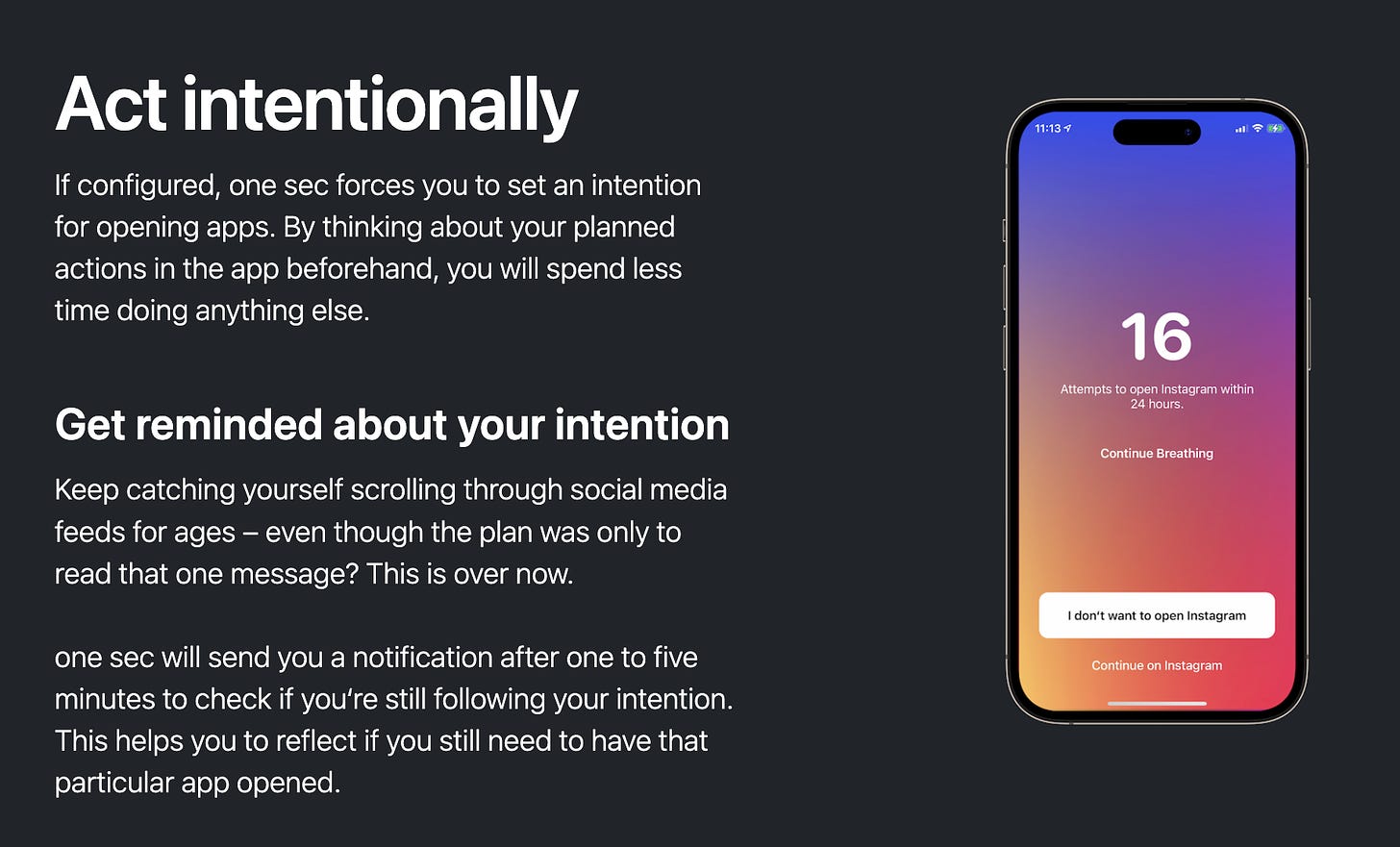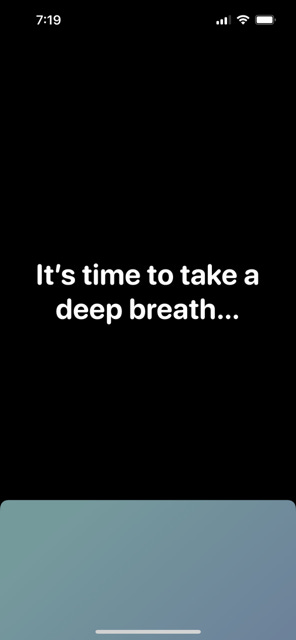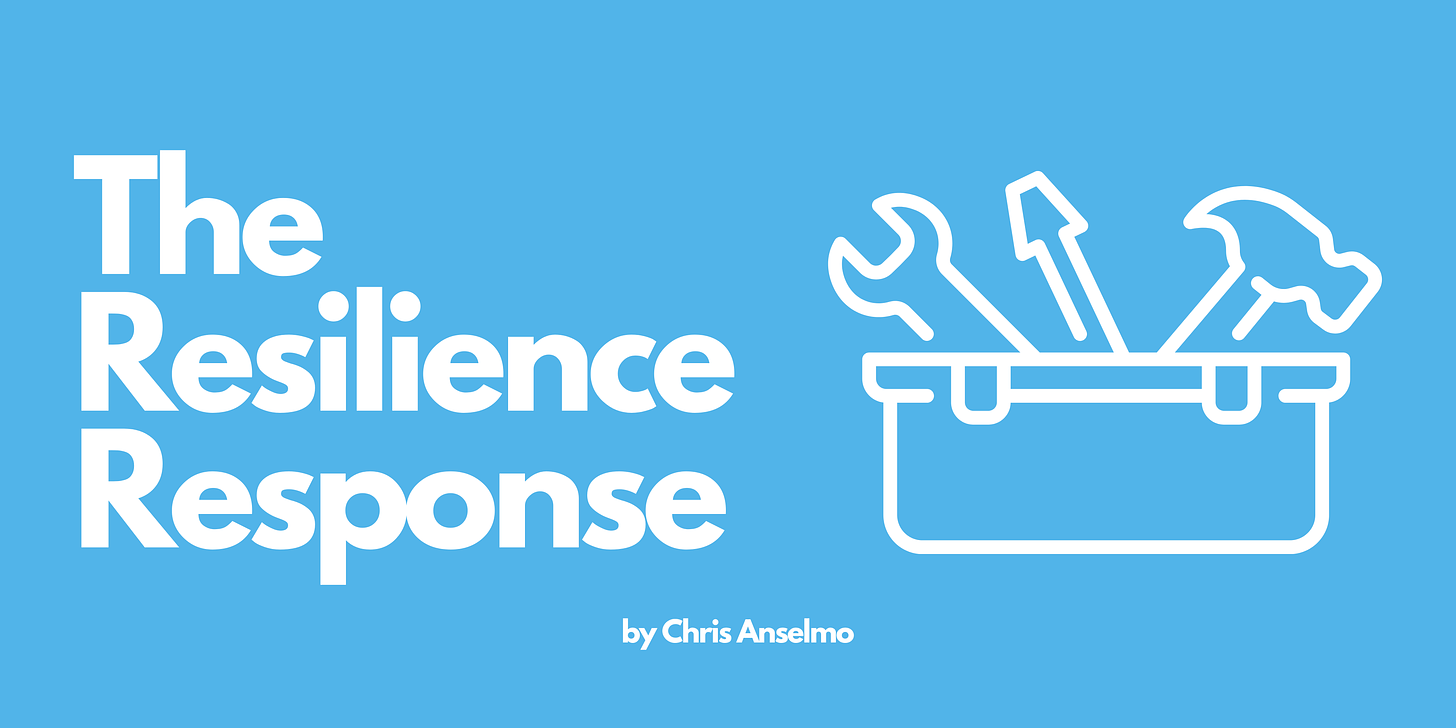The Resilience Response #9 - October 28, 2023
Taking advantage of Solomon's Paradox, Sahil Bloom on what he learned from his grandmother, an annoying app that I love, and more
Happy Saturday!
Welcome to The Resilience Response, a newsletter that provides the tools and resources you need to face adversity with confidence.
It took some trial and error, but I managed to publish my first audio recording this week, which you can find at the end of Wednesday’s post. Once I realized that I should take occasional breaks to preserve my voice, the process went much smoother.
I appreciate the feedback I’ve received thus far. It sounds like the audio recording resonated with readers, which is what I was hoping for! I am going to make the next recording free also (just in case anyone missed the first one), before making it a paid subscriber benefit after that.
Here’s what’s on deck this week:
🔧 For the Toolkit: Taking advantage of Solomon’s Paradox: Follow the advice that you’d give to a friend
🎙️ In the First Person: Sahil Bloom on what he learned from his grandmother
📱What’s Helped Me: The one sec app
✍️ Weekly Intention: Think of a problem in your life, and pretend you are advising a friend on how to handle it
🎁 Extras: A few links worth sharing
🔧 For the Toolkit: Taking advantage of Solomon’s Paradox: Follow the advice that you’d give to a friend

The other day, I found myself overwhelmed by my to-do list. It’s not just that I had too much on my plate; it also felt like I was working on the wrong tasks altogether.
And yet, there I was, spinning my wheels, going nowhere fast.
By mid-afternoon, I realized this was madness. I stopped what I was doing and went outside for a few minutes to reset. As I breathed in the crisp fall air, I remembered an article I had read earlier this year about Solomon’s Paradox, which states that we are often able to see other people’s problems more clearly than we see our own.
Putting this paradox to work, I decided to give myself the advice that I’d give to a friend facing the same problem.
Here’s what I did:
First, I detached myself from the situation, what the article calls “self-distancing.” I pictured my problem — doing mindless busywork — existing apart from my body. This allowed me the space to look at the problem from an outside vantage point.
Next, I pretended that a friend had come to me for advice on how to deal with the same problem. I visualized the friend explaining their situation, how they wanted to achieve certain goals, but found themselves exhausted and overworked, without making any meaningful progress.
I then offered my friend advice on what they should do, from my objective, outside perspective.
It’s a simple process but it works like a charm. By distancing myself from the problem and pretending someone was asking me for advice, I was able to clearly see the solution that, for whatever reason, I had been ignoring.
The advice I gave my friend was to have them focus on the most important tasks first, the ones that would have the biggest impact on their goals. “Focus on the big rocks and not the pebbles,” I said in this hypothetical conversation. “You’re afraid of letting the little things slide when you should instead be afraid of neglecting your priorities.”
I was now able to see that I wasn’t placing enough emphasis on scheduling the important tasks first. I made the necessary tweaks to my daily schedule and have been much more productive ever since.
Eventually, I would have arrived at the right answer, but there’s no telling when.
Next time you are at your wits’ end, or just want to look at a problem with fresh eyes, try this approach. There’s a good chance it may lead to a breakthrough.
🎙️ In the First Person: Sahil Bloom on what he learned from his grandmother
Investor and entrepreneur Sahil Bloom recently lost his grandmother on October 1st. In this touching tribute, Bloom recalls ten lessons “Avva” taught him about life.
As I read this piece, I was reminded of both of my grandmothers, who passed away when I was younger. Even though they’ve been gone for 17 and 28 years, respectively, I still remember how they made me feel and the joy they brought to my life.
Each of the ten lessons resonated with me in different ways, especially the second one:
“Life isn't about avoiding chaos, but making the chaos beautiful.”
In this lesson, Bloom tells the story of how his grandparents visited his family in Boston in 1997. During their stay, there was a blizzard that knocked out power for a week. One morning, he came downstairs to find his grandmother cooking breakfast in the fireplace, a memory that has stayed with him ever since:
“I don't remember all of the calm, normal days we spent together that spring, but I do remember those chaotic days that were made so beautiful by her presence and attitude.
Life, it turns out, isn't about the moments of calm, but about the moments of chaos that we make beautiful.”
Finding beauty in the chaos is the essence of persevering through adversity.
📚 What’s Helped Me: The one sec app

The goal of the one sec app is to help us break free from our addiction to certain smartphone apps. The website explains in detail how it works, but in a nutshell, one sec jumps in any time you try to open a pre-specified app, such as Instagram or TikTok. By forcing us to pause and think about why we are opening the app, it can help prevent mindless scrolling.
The app I struggle with the most is Instagram. It’s a love-hate relationship, but more often than not it leaves me feeling worse about myself. Now, any time I open Instagram, one sec jumps in and blocks the app from opening until I’ve completed ten seconds of breathing exercises.

Next, I’m prompted to select what emotion I’m feeling at the moment (bored, sad, anxious, etc.) so that it can track that data over time. Then, and only then, does Instagram open.
Is it unbearably annoying? It’s the worst.
Is it just what I’m looking for? Absolutely!
I was skeptical at first, but over time, my desire to use Instagram has gone way down. (I still use it to post Hello, Adversity content which is why I keep it on my phone.) Every time I open Instagram, I can feel the judgmental glare of one sec, which is how I know it works.
The time I’ve saved not using Instagram has allowed me to focus on more important tasks. It also keeps me from falling into the comparison trap.
Thank you to
of for making me aware of this app.✍️ Weekly Intention: Think of a problem in your life, and pretend you are advising a friend on how to handle it
We all have problems that we’re too close to. These problems are usually persistent or recurring, and despite our best efforts, they never seem to get resolved.
Take one of these intractable problems in your life and utilize the 3-step process described earlier:
Distance yourself from the problem.
Pretend a friend (or family member or stranger) has come to you for help on how to deal with the problem.
Give them advice, and then follow that advice.
If you’re comfortable sharing your example, I’d love to hear from you. What advice did you give in your hypothetical conversation? Were you able to apply the advice to your own situation?
🎁 Extras
Here are a few links I came across this week that I thought were worth sharing:
I really enjoyed this article from
on how the “performative personalization” of the internet has redefined what counts as a “friend”. I also share his sentiments on Starbucks coffee.The hardest part of writing a memoir is getting started. I found this “lists” approach helpful as I began organizing my story.
Dr. Mariana Calleja Ross of
has an informative series on stress — how it manifests in the body and how we can manage it. I am learning a lot so far!




Well, this is an amazingly informative piece, first of all. Wow The Salomon's paradox! I hadn't heard of it but I've heard of that concept/idea/practice somehow, yet never as clearly as this. This is something I feel like I want to write down on a post-it note and have it on my night table or my mirror, so that I can access it quickly and easily every time needed. Seriously, magic.
And I'm humbled by your mention, thank you so much! I'm finding the feedback from every lesson being huge and positive! And it's motivating me even more. It's exciting to realise that what you share has meaningful value. And so I want to reassure you if the same. I find your newsletter and your overall topic on how to sail through adversity, resilience, personal experiences, psychological knowledge and deep dives to be utterly important. I'm so happy and glad we're connected in this space.
Thank you, Christopher!
Come over to Threads. It's much more fun. xo